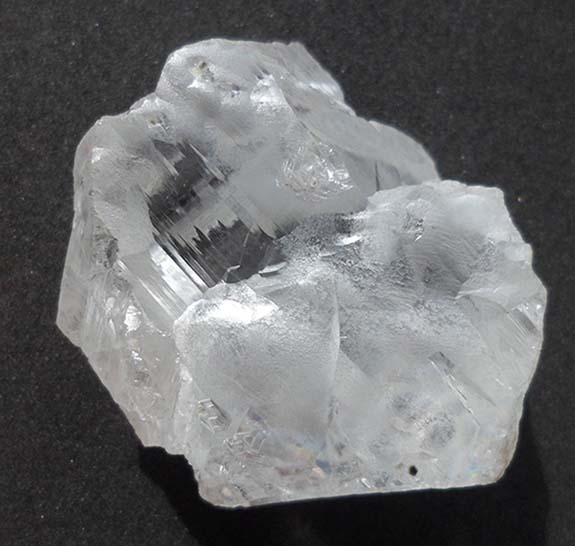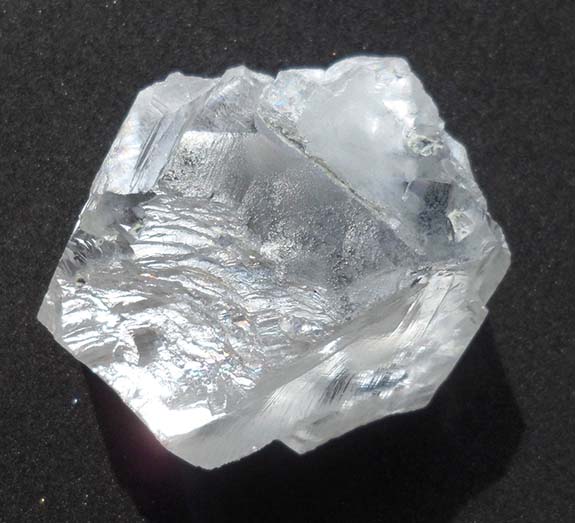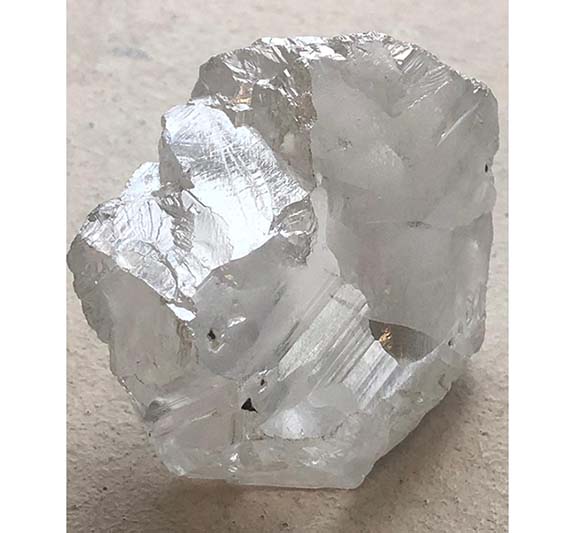April 2nd, 2019
The historic Cullinan Mine, which famously produced the 3,106-carat Cullinan in 1905, added another enormous diamond to its roster of legendary finds. London-based Petra Diamonds announced late last week that it had unearthed a 425.10-carat, D-color, ultra-pure, Type II diamond at the South African mine.

Analysts placed the stone's value somewhere between a high of $35 million and a low of $8 million. A three-dimensional mapping of the rough stone still needs to be conducted to determine the size and number of polished stones it may yield. Petra expects to sell the gem before June 30.

The yet-to-be named diamond is the sixth-largest ever discovered at the mine, which has been operational since 1902.
The diamond ranks 38th on Wikipedia's list of the Largest Rough Diamonds of All Time, just behind The De Beers (428.5 carats, South Africa, discovered 1888) and just ahead of The Regent (410 carats, India, 1698).
The Premier Mine, which was renamed the Cullinan Diamond Mine in celebration of its 100th anniversary, is responsible for producing seven of the world's largest 50 diamonds based on carat weight. These include the Cullinan Heritage (#27, 507 carats, 2009), Centenary (#23, 599 carats, 1986), The Golden Jubilee (#11, 755 carats, 1985) and the granddaddy of them all — the Cullinan Diamond (#1).
The 3,106-carat Cullinan diamond was eventually segmented into nine major stones, each of which was given the name Cullinan and a Roman numeral. Two of the gems are part of the the British Crown Jewels — the Great Star of Africa (Cullinan I) at 530.4 carats and the Second Star of Africa (Cullinan II) at 317.4 carats.

Petra's newest find boasts Type II clarity, the purest of all diamonds because they are composed solely of carbon with virtually no trace elements in the crystal lattice. A spokesperson for Petra said the newest discovery "further demonstrates the prevalence of these types of stones in the Cullinan orebody, as well as the ability of the mine’s plant to recover the full spectrum of diamonds.”
Credits: Images courtesy of Petra Diamonds.

Analysts placed the stone's value somewhere between a high of $35 million and a low of $8 million. A three-dimensional mapping of the rough stone still needs to be conducted to determine the size and number of polished stones it may yield. Petra expects to sell the gem before June 30.

The yet-to-be named diamond is the sixth-largest ever discovered at the mine, which has been operational since 1902.
The diamond ranks 38th on Wikipedia's list of the Largest Rough Diamonds of All Time, just behind The De Beers (428.5 carats, South Africa, discovered 1888) and just ahead of The Regent (410 carats, India, 1698).
The Premier Mine, which was renamed the Cullinan Diamond Mine in celebration of its 100th anniversary, is responsible for producing seven of the world's largest 50 diamonds based on carat weight. These include the Cullinan Heritage (#27, 507 carats, 2009), Centenary (#23, 599 carats, 1986), The Golden Jubilee (#11, 755 carats, 1985) and the granddaddy of them all — the Cullinan Diamond (#1).
The 3,106-carat Cullinan diamond was eventually segmented into nine major stones, each of which was given the name Cullinan and a Roman numeral. Two of the gems are part of the the British Crown Jewels — the Great Star of Africa (Cullinan I) at 530.4 carats and the Second Star of Africa (Cullinan II) at 317.4 carats.

Petra's newest find boasts Type II clarity, the purest of all diamonds because they are composed solely of carbon with virtually no trace elements in the crystal lattice. A spokesperson for Petra said the newest discovery "further demonstrates the prevalence of these types of stones in the Cullinan orebody, as well as the ability of the mine’s plant to recover the full spectrum of diamonds.”
Credits: Images courtesy of Petra Diamonds.


